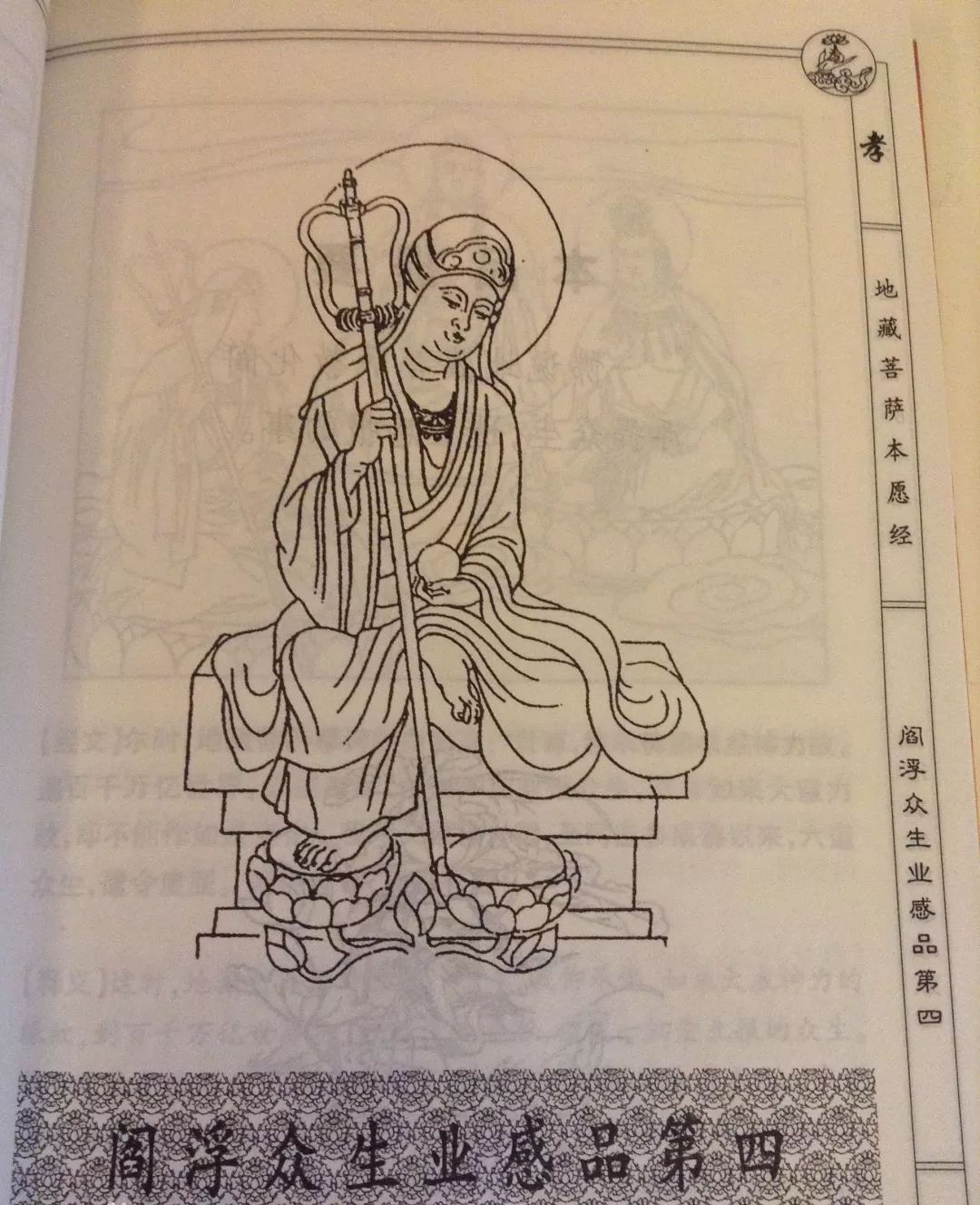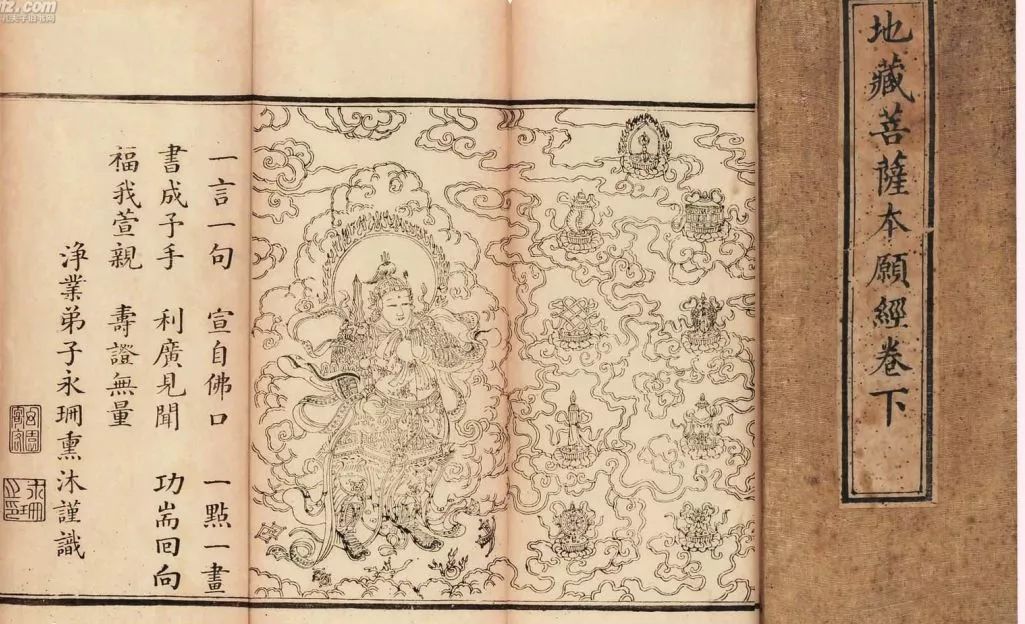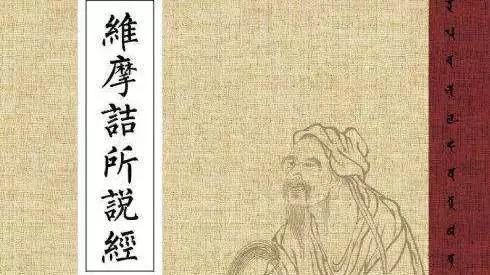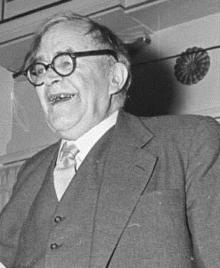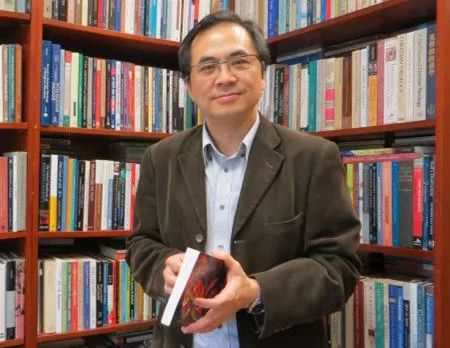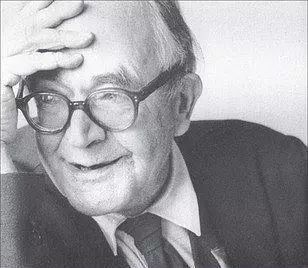[①]在汉语神学界最近也有相关论文问世。参:曾劭恺:《万物复原与终末天谴—巴特对普世救赎的辩证处理》,《道风》47 (2017秋),第141-167页。[TSENG Shao Kai, “Apokatastais and Final Condemnation: Karl Barth’s Dialectical Treatment of Universal Salvation,” Logos & Pneuma, vol. 47 (Autumn 2017): 141-167.]
[②] For example, Joseph D. Bettis, “Is Karl Barth a Universalist?,” Scottish Journal of Theology 20.4 (1967): 423-436.
[③] J. Colwell, “The Contemporaneity of the Divine Decision: Reflections on Barth’s Denial of ‘universalism’,” in Universalism and the Doctrine of Hell, ed. Nigel M de S. Cameron (Grand Rapids: Baker Book House, 1992), 139-160; Oliver D. Crisp, “On Barth’s Denial of Universalism,” Themelios 29 (2003): 18-29.
[④]有关如来藏的传统,参:Paul Williams, Mahāyāna Buddhism: The Doctrinal Foundations, 2nd Edition (London: Routledge, 2009), 103-128.
[⑤] See for details: Sallie B. King, Buddha Nature (Delhi: Sri Satguru Publications, 1992).
[⑥] See: Masao Abe, A Study of Dōgen: His Philosophy and Religion, edited by Steven Heine (Albany: State University of New York, 1992), 35-76; Heinrich Dumoulin, Zen Enlightenment: Origins and Meaning, trans. John C. Maraldo (New York: Weatherhill, 1979), 102-124.
[⑦] Paul Williams, Mahāyāna Buddhism, 229-231.
[⑧] Roger J. Corless, “Pure Land Piety,” in Buddhist Spirituality: Indian, Southeast Asian, Tibetan, Early Chinese, eds. Takeuchi Yoshinori et al (London: SCM, 1994), 242-271.
[⑨] Alfred Bloom, “Shinran’s Way,” in Buddhist Spirituality: Later China, Korea, Japan, and the Modern World, eds. Takeuchi Yoshinori et al (New York: Crossroad, 1999), 222-238.
[⑩] Paul O. Ingram, The Modern Buddhist-Christian Dialogue (Lewiston, New York: The Edwin Mellen Press, 1988), 347-382.
[11]参:Barth, Church Dogmatics, I / 2, trans. G. T. Thomson & H. Knight (Edinburgh: T. & T. Clark, 1956), 280-361; Karl Barth, On Religion: The Revelation of God as the Sublimation of Religion, trans. & intro. Garrett Green (London: T & T Clark, 2006).
[12] David W. Chappell, “From Dispute to Dual Cultivation: Pure Land Responses to Ch’an Critics,” in Traditions of Meditation in Chinese Buddhism, ed. Peter N. Gregory (Honolulu: University of Hawaii Press, 1986), 163-197.
[13]有关方便善巧的观念,可参:Michael Pye, Skillful Means: A Concept in Mahayana Buddhism; London: Duckworth, 1978); John W. Schroeder, Skillful Means: The Heart of Buddhist Compassion (Honolulu: University of Hawaii Press, 2001).
[14] Alfred Bloom, “Shinran’s Way,” 230.
[15]有关中国佛教的判教,可参:Man Chanju, The History of Doctrinal Classification in Chinese Buddhism: A Study of the Panjiao Systems (Lanham: University Press of America, 2006).
[16]参:Kristin Beise Kiblinger, Buddhist Inclusivism: Attitudes towards Religious Others (Burlington, VT: Ashgate Publishing Company, 2005).
[17]以上对大乘佛教对普世救渡的勾勒,乃参考及改写自:赖品超 :《大乘基督教神学:汉语神学的思想实验》,香港:道风书社,2011,第253-278页。[Lai Pan Chiu, Mahayana Christian Theology: Thought Experiments of Sino-Christian Theology (Hong Kong: Logos & Pneuma Press, 2011), 253-278.]
[18]有关巴特神学的大乘性格,参:Lai Pan-chiu,“Karl Barth and Buddhist-Christian Studies in China,” Journal of Comparative Scripture 6 (2015): 69-112.
[19]例如:Hans Urs von Balthasar, Dare We Hope“That all Man be Saved”?, trans. David Kipp & Lothar Krauth (San Francisco: Ignatius Press,1988), 94, 196-197.
[20] Barth, Church Dogmatics, IV / 3, trans. G. W. Bromiley (Edinburgh: T. & T. Clark, 1961-2), 478.
[21] Barth, Church Dogmatics, I / 2, 329.
[22] Barth, Church Dogmatics, IV / 3, 113-114.
[23] Barth, Christ and Adam: Man and Humanity in Romans 5, tran. T. A. Smail (Edinburgh: Oliver and Boyd, 1956), 6, 10.
[24] Barth, Church Dogmatics, III / 2, trans. H. Knight, G. W. Bromiley, J. K. S. Reid & R. H. Fuller (Edinburgh: T. & T. Clark, 1960), 199, 276.
[25] Barth, Church Dogmatics, I/1, trans. G. W. Bromiley (Edinburgh: T. & T. Clark, second edition 1975), 60.
[26] Barth, Gespräche IV, 1964-1968, 401; 转引自 Paul S. Chung, Karl Barth: God’s Word in Action (Eugene, Oregon: Cascade, 2008), 462.
[27]正如 Sevn Ensminger 指出,巴特提及死狗、俄罗斯共产主义等,目的在肯定上帝具有主权,可以使用不同的媒介去启示,而不是有众多不同的启示(revelations)存在,而所肯定的是关于潜质(potentiality)或能耐(capability)多过是事实(fact)。再者,巴特提及“其他的众光”(“other lights”)并没有牺牲耶稣基督作为唯一真光的独特性;这是因为,其他的众光能闪耀皆因它们被那“生命的光”所照亮。参:Sven Ensminger, Karl Barth’s Theology as a Resource for a Christian Theology of Religions (London: Bloomsbury, 2014), 27-40.
[28] See: Barth, “No!” in Natural Theology, ed. John Baillie, trans. Peter Fraenkel (London: The Centenary Press, 1946), 65-128.
[29] Emil Brunner, “Nature and Grace,” in Natural Theology, ed. John Billie, 59.
[30] Hans Küng, Does God Exist?, trans. Edward Quinn (London: Collins, 1980), 525-528.
[31] Hans Urs von Balthasar, The Theology of Karl Barth: Exposition and Interpretation, trans. Edward T. Oakes (San Francisco: Ignatius Press, 1992).
[32] Bruce L. McCormack, Karl Barth’s Critically Realistic Dialectical Theology: Its Genesis and Development 1909-1936 (Oxford: Clarendon Press, 1995).
[33] Barth, The Word of God and the Word of Man, trans. Douglas Horton (London: Hodder & Stoughton, 1935), 103.
[34] Barth, Church Dogmatics, II / 1, trans. T. H. L. Parker, W. B. Johnston, K. McKnight & J. L. M. Haire (Edinburgh: T. & T. Clark, 1957), 634.
[35] John Webster, Barth (London: Continuum, 2000), 20-48.
[36]以巴特论宗教为例,他的早期(但不是最早)的对宗教的批判,就是在《教会教义学》第一卷第二册,第17节的著名篇章“上帝的启示作为宗教的扬弃”(Gottes Offenbarung als Aufhebung der Religion)所涉及的,不仅是对宗教的废弃也是提升,并与他后来在《教会教义学》第四卷第三册论“其他的众光”具有一定的连续性。参:Garrett Green, “Introduction: Barth as Theorist of Religion,” in: Karl Barth, On Religion: The Revelation of God as the Sublimation of Religion, trans. & intro. Garrett Green, 1-29;另可参:赖品超:《巴特论宗教:一个汉语处境的反省》,载赖品超及邓绍光合编,《巴特与汉语神学》(香港:汉语基督教文化研究所,2000),第191-215页。[Lai Pan Chiu, “Karl Barth On Religion: A Sino-Christian Reflection,” in Lai Pan Chiu and Andres S. K. Tang, ed., Karl Barth and Sino-Christian Theology (Hong Kong: Logos & Pneuma Press, 2000), 191-215.] 查巴特的早期与后期对宗教的论述的分别,很可能是因为分别受到1930年代及1960年代的不同的政治处境所左右;他在上世纪三十年代对宗教的批判尤其反映他参与在对抗纳纳粹党及“德意志基督徒”的《巴门宣言》 (Barmen Declaration)。参:Sven Ensminger, Karl Barth’s Theology as a Resource for a Christian Theology of Religions, 24-27.
[37]除了巴特自己提出的,净土真宗的唯独恩典的教义在形式上的相似外,地藏菩萨的宏愿也使人想起巴特对基督降至阴间的诠释。有关巴特对基督降至阴间的诠释,而不涉及与佛教的比较的,可参:David Lauber, Barth on the Descent into Hell: God, Atonement and the Christian Life (Burlington: VT: Ashgate, 2004).
[38]賴品超:《大乘基督教神學》,第69-102, 197-221頁。[Lai Pan Chiu, Mahayana Christian Theology, 69-102,197-221.]
[39] Tom Greggs, Barth, Origen, and Universal Salvation: Restoring Particularity (Oxford: Oxford University Press, 2009), 29-31.
[40] Greggs, Barth, Origen, and Universal Salvation, 31.
[41] Tom Greggs, “Pessimistic Universalism: Rethinking the Wider Hope with Bonhoeffer and Barth,” Modern Theology 26.4 (2010):495-510.
[42]巴特的基督论式人观与如来藏传统的佛性论都假设一种正面、甚至是乐观的人性论,但又不是否定人的罪。参:赖品超:《大乘基督教神学》,第197-221页。[Lai Pan Chiu, Mahayana Christian Theology, 197-221.]
[43]有关“随缘普救”(contingent universalism)与“必然普救”(necessary universalism)的分别,参:Oliver D. Crisp, “I Do Teach It, but I also Do Not Teach It: The Universalism of Karl Barth (1886-1968),”306-309.
[44] Timothy Scheuers, “An Evaluation of Some Aspects of Karl Barth’s Doctrine of Election,”Mid-American Journal of Theology 22 (2011): 161-173, 尤其 168-169.
[45] Barth, Church Dogmatics, II / 2, 177-178.
[46]赖品超:《神爱、人爱与自他不二:一个汉语基督宗教的观点》,《道风》49 (2018秋),第197-222页。[LAI Pan-chiu,“Divine Love, Human Love, and Non-Duality of Self and Other: A Sino-Christian Perspective,”Logos & Pneuma, vol. 49 (Autumn 2018): 197-222.]
[47] Barth, Church Dogmatics II / 2, 417, 476-7; IV /3, §70.3 “The Condemnation of Man”; 转引自: Tom Greggs, Barth, Origen, and Universal Salvation, 29.
[48] See: Michael O’Neil, “Karl Barth’s Doctrine of Election,” Evangelical Quarterly 76.4 (2004): 311-326.
[49] Oliver Crisp, “The Letter and the Spirit of Barth’s Doctrine of Election: A Response to Michael O’Neill,” Evangelical Quarterly 79.1 (2007): 53-67.
[50] Oliver D. Crisp, “I Do Teach It, but I also Do Not Teach It: The Universalism of Karl Barth (1886-1968),” in “All Shall be Well”: Explorations in Universal Salvation and Christian Theology, ed. Gregory McDonald (Cambridge: James Clarke & Co., 2011), 305-324.
[51] See: Eberhard Jüngel, Karl Barth, a Theological Legacy, trans. Garrett E. Paul (Philadelphia: The Westminster Press, 1986), 44-45.
[52] Oliver D. Crisp, “I Do Teach It, but I also Do Not Teach It: The Universalism of Karl Barth (1886-1968),” in “All Shall be Well”: Explorations in Universal Salvation and Christian Theology, 310, note 10.
[53] David W. Congdon对Crisp 有类似的批评,参:David W. Congdon, “Apokatastasis and apostolicity: a response to Oliver Crisp on the question of Barth’s universalism,” Scottish Journal of Theology67.4 (Nov. 2014): 465, n.2.
[54] Jürgen Moltmann, The Coming of God: Christian Eschatology, trans. Margaret Kohl (London: SCM, 1996), 239.
[55] David W. Congdon, “Apokatastasis and apostolicity: a response to Oliver Crisp on the question of Barth’s universalism,” Scottish Journal of Theology 67.4 (Nov. 2014): 464-480.
[56] Mark S. M. Scott, “Guarding the Mysteries of Salvation: The Pastoral Pedagogy of Origen’s Universalism,” Journal of Early Christian Studies 18.3 (2010): 347-368.
[57]参:赖品超:《大乘基督教神学》,第69-102页。
[58]详参:Tom Greggs, Barth, Origen and Universal Salvation, esp. 206-215.
[59] Suzanne McDonald, “Evangelical Questioning of Election in Barth: A Pneumatological Perspective from the Reformed Heritage,” in: Karl Barth and American Evangelicalism, ed. Clifford B. Anderson (Grand Rapids: Eerdmans, 2011), 250-268, 尤其 264.
[60] Timothy Scheuers, “An Evaluation of Some Aspects of Karl Barth’s Doctrine of Election,” 167-172.
[61] 参:Hans Ur von Balthasar, Dare We Hope “That all Man be saved”?, 97-113, 尤其 105-107; Timothy Ware, The Orthodox Church, New Edition (London: Penguin Books, 1997), p.262. 另参: 赖品超:《大乘基督教神学》,第272-274页。
[62] Andrew Linzey 在提出他的动物神学时,曾引用巴特来支持一种更为整全的对拯救的神学理解,但也意到巴特的神学在这方面的限制。参:Andrew Linzey, Animal Gospel (Louisville, Kentucky: Westminster John Knox Press, 2000); Animal Theology (London: SCM Press, 1994), 7-12.
[63]例如:Lai Pan-chiu, “Paul Tillich and Ecological Theology,” The Journal of Religion 79.2 (1999): 233-249; Michael F. Drummy, Being and Earth: Paul Tillich’s Theology of Nature (Lanham: University Press of America, 2000); Ka-fu Keith Chan, Life as Spirit: A Study of Paul Tillich’s Ecological Pneumatology (Berlin: Walter de Gruyter, 2018).
[64]赖品超:《大乘基督教神学》,第223-252页。[Lai Pan Chiu, Mahayana Christian Theology, 223-252.]
[65]一个比较正面而仔细的探讨可参:Willis Jenkins, Ecologies of Grace: Environmental Ethics and Christian Theology (Oxford: Oxford University Press, 2008), 153-187.
[66] Barth, Humanity of God, trans. John Newton Thomas and Thomas Wieser (London: Collins, 1961 [Fontana Library 1967]), 9-32.
[67] Greggs, Barth, Origen, and Universal Salvation, 32-34, 43-48.
[68]一个初步探讨可参:赖品超:《大乘基督教神学》,第131-167, 197-221页。[Lai Pan Chiu, Mahayana Christian Theology, 131-167,197-221.]
[69]对于犹大的问题,参:Barth, Church Dogmatics II / 2, 458-506;对于以色列的问题,参:Katherine Sonderegger, That Jesus Christ Was Born a Jew: Karl Barth’s “Doctrine of Israel” (University Park, Pennsylvania: The Pennsylvania State University Press, 1992).
